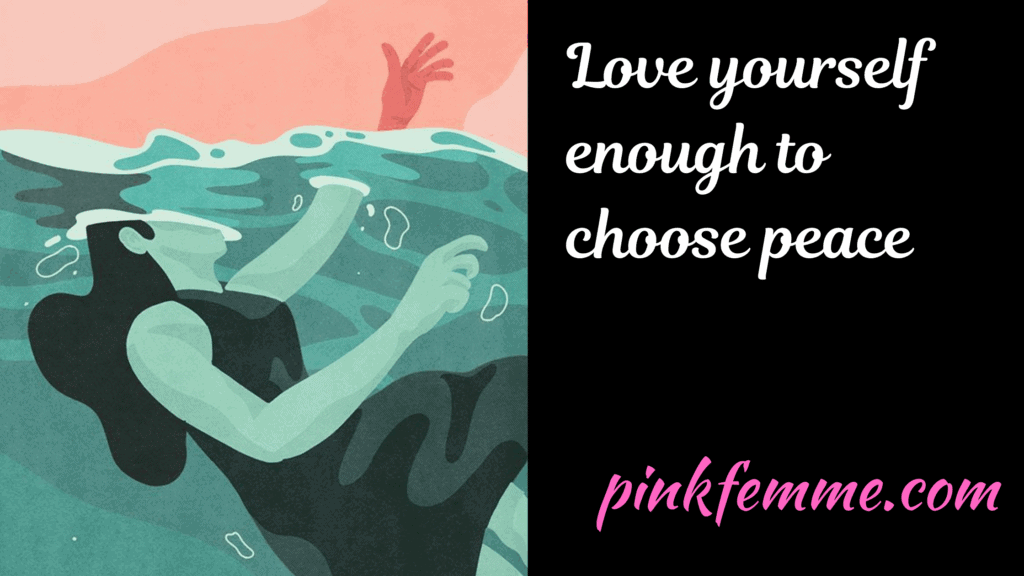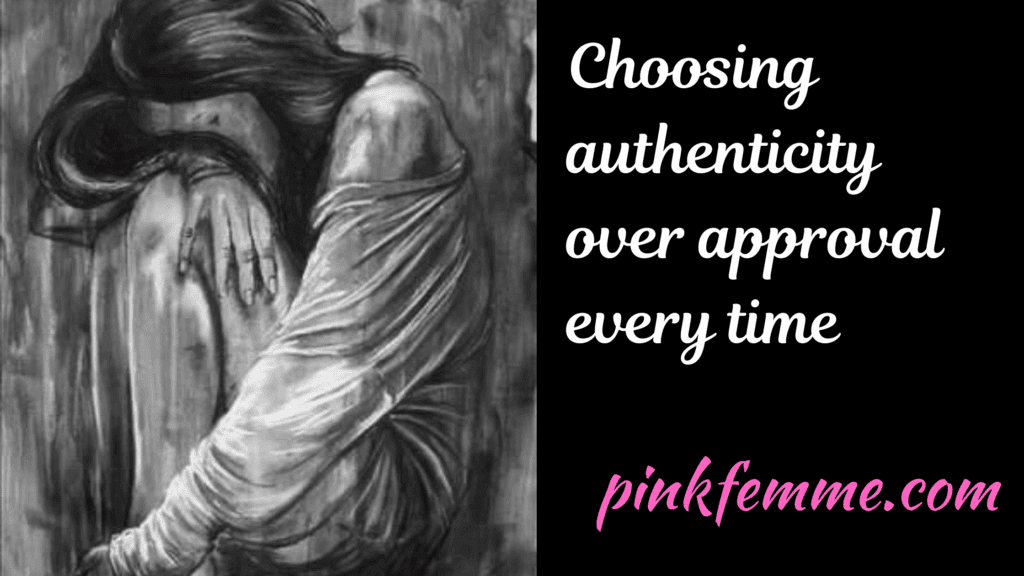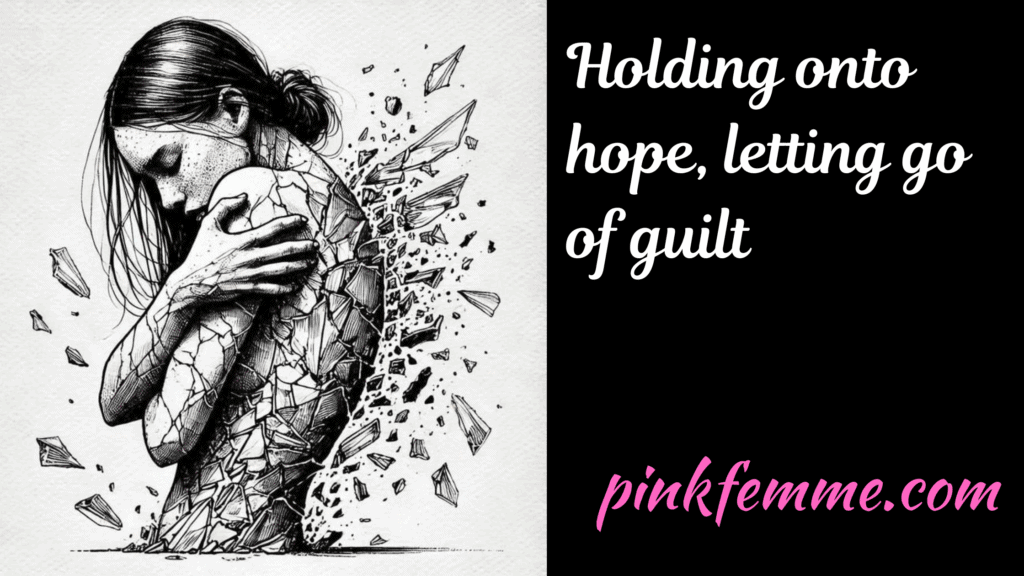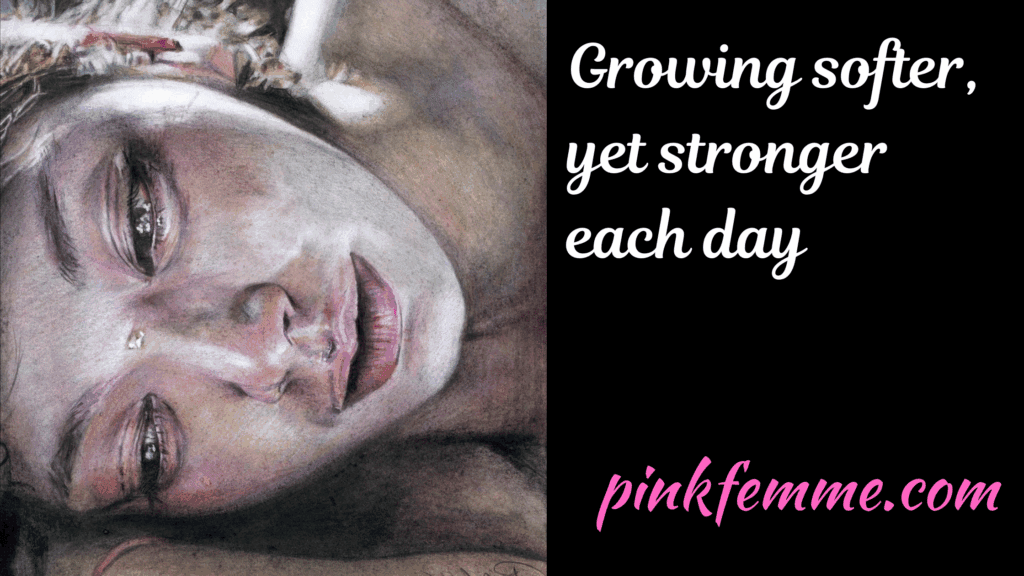
If you’ve ever felt crushing guilt around your family because of your identity, you are not alone. I know how painful it can be to carry the weight of rejection, ultimatums, or silence from the people you expected to love you the most. That ache is real, and it deserves compassion.
Many transgender people feel guilt toward their parents and family because of rejection, ultimatums, or abandonment. This guilt often comes from the harmful myth that family must stick together no matter what—even when the family is toxic.
Guilt is a heavy burden, and it’s often made worse by society’s false idea that family should always come first, even at the cost of your health and happiness. In this article, I want to gently explore where that guilt comes from, why it feels so overwhelming, and how you can begin to free yourself from it.
When Family Rejection Becomes Abuse
For so many of us, guilt isn’t born out of choice but out of rejection. It doesn’t always begin with one single moment—it can unfold slowly, through small comments that cut deeper than anyone realizes. A parent refusing to use your name. A sibling making jokes at your expense. An aunt or uncle whispering about you at gatherings. Those little moments add up, and before long, the message is clear: you are not welcome here as yourself.
Then come the bigger blows. Some families disown us outright, while others try to disguise rejection as “rules.” They say things like, you can still come to Christmas, but only if you dress the way we tell you or we’ll support you, but not in front of the children. These are not compromises—they are ultimatums. And they place us in an impossible position: either betray ourselves or lose our family.
The cruelest part is that many of these decisions aren’t even ours to make. Sometimes, it isn’t you who walks away—it’s your family who closes the door. They uninvite you from birthdays, refuse to take your calls, or cut you off financially or emotionally. That severing can feel like abandonment on the deepest level, because it often comes from the very people who once promised unconditional love.
And yet, even when we know in our hearts that transition is a matter of survival, we still feel guilt. Guilt for disrupting the family dynamic. Guilt for being “too much.” Guilt for the silence at the dinner table where we used to sit. This guilt clings not because we’ve done anything wrong, but because we were raised to believe that family is supposed to love us no matter what—and when they don’t, we instinctively blame ourselves.
Rejection from family doesn’t just hurt—it reshapes the way we see ourselves. It leaves us wondering if we’re worthy of love, safety, or belonging. That’s why I call it abuse: because it’s not just about disagreement or discomfort. It’s about control, power, and punishment for daring to live authentically. And when the people who were meant to protect you instead become the ones who harm you, the wounds cut especially deep.
The Myth of “Family Above All”
We’ve all heard it: family is thicker than blood. It’s one of those sayings that gets woven into us from the time we’re children. It shows up in fairy tales, in TV dramas where siblings forgive each other after betrayal, and in holiday commercials where everyone gathers smiling around the table. The message is subtle but powerful: no matter what happens, family always comes first.
But here’s the truth that so many of us discover the hard way: those words can become chains. When your family is loving, supportive, and safe, the idea of “family above all” can be a source of comfort. It can remind you of the strength you have in one another, the resilience of bonds that survive challenges. Yet when your family is toxic, abusive, or unwilling to accept you as you are, that same myth can turn cruel. Instead of comfort, it becomes pressure. Instead of unity, it becomes guilt.
The danger in this myth is that it doesn’t leave room for complexity. It doesn’t acknowledge the reality that not every parent nurtures, not every sibling protects, and not every relative wants the best for us. It demands blind loyalty, even when that loyalty comes at the cost of our mental health, our safety, and sometimes even our survival.
I can’t tell you how many times I’ve heard people say, but they’re your family—you have to forgive them. Forgive what? The insults? The rejection? The way they erase your identity at every turn? Forgiveness is a personal choice, not an obligation, and no one should ever feel required to keep harmful people close just because they share DNA.

This myth also fuels the guilt we carry. We grow up believing that if there’s a rupture between us and our family, it must mean we failed. That we weren’t loyal enough, patient enough, or loving enough. But the reality is often the opposite: many of us have bent ourselves into painful shapes trying to keep the peace, only to realize peace was never possible in the first place.
The most liberating shift comes when you realize that family should be defined by love, not by blood. True family is the people who show up when life is hard, who celebrate your joy without conditions, and who stand by you even when they don’t fully understand. Anything less than that is not proof that you are unlovable—it’s proof that the myth of “family above all” has been protecting the wrong people at your expense.
Guilt and the Weight of Expectations
So much of this guilt doesn’t come from within us—it’s planted there. From an early age, many of us are taught to obey, to respect, and to never upset the balance of the family unit. That teaching often comes with unspoken rules: don’t talk back, don’t cause conflict, don’t embarrass the family. These messages, absorbed over years, make it almost automatic to feel as though we’re betraying someone simply by being honest about who we are.
When you decide to transition, you’re not just stepping into your truth—you’re also breaking those unspoken rules. Suddenly, you’re told you’re making life harder for others. You’re called selfish, dramatic, or accused of seeking attention. These accusations sting because they twist the narrative: instead of your family acknowledging the courage it takes to choose authenticity, they frame your survival as a burden they must carry.
It’s no wonder guilt grows in that space. It’s like carrying an invisible backpack filled with everyone else’s expectations. You feel it when you’re told you should “just wait a little longer” before transitioning. You feel it when someone suggests you should compromise who you are to keep the peace. And you feel it most heavily when your happiness is seen as less important than your family’s comfort.
But here’s the truth I want you to hold close: your transition is not selfish. It’s healthcare. It’s survival. It’s you choosing life over despair, health over silence, and authenticity over invisibility. No one should ever have to apologize for wanting to live a full and honest life.
The weight of expectations can make it feel like you’re letting people down just by breathing in your own skin. But that weight is not yours to carry. It belongs to a culture that prioritizes appearances over authenticity and obedience over well-being. Your job is not to make yourself small enough to fit into someone else’s comfort zone. Your job is to honor your health, your heart, and your future.
And while it may take time, releasing this guilt opens the door to a powerful truth: you were never meant to live for someone else’s expectations. You were meant to live for you.
Recognizing Toxic Ultimatums vs. Boundaries
One of the hardest parts of navigating family dynamics as a transgender woman is learning to tell the difference between a healthy boundary and a toxic ultimatum. Families often use the language of “boundaries” to make their control seem reasonable, but in reality, what they are giving you is a condition for love. And love that comes with conditions is not love—it’s leverage.
A true boundary sounds like, “I need some time to learn and adjust, but I still want you in my life.” It is about self-care while keeping the relationship intact. Boundaries are rooted in honesty and respect—they create room for both people to exist as they are. For example, a parent might say, “I struggle with the new pronouns, but I am trying. Please be patient with me.” That is a boundary. It acknowledges their limitation while affirming their desire to maintain connection.
An ultimatum, on the other hand, takes away choice. It sounds like, “You can only be part of this family if you deny who you are,” or “We’ll accept you, but not if you transition.” Ultimatums aren’t about respect or compromise; they’re about control and fear. They force you into an impossible position where you must choose between your identity and your place at the family table.
This distinction is important because guilt thrives in confusion. When someone frames rejection as a boundary, it can make you feel as though you’re the one being unreasonable. But once you recognize it for what it truly is—control disguised as care—you can begin to release the guilt that isn’t yours to carry.

Healthy boundaries create safety and trust, even if they involve discomfort. Ultimatums create distance and shame, no matter how they’re worded. And while boundaries can lead to deeper connection over time, ultimatums sever it.
So the next time you hear, “We just can’t accept this,” pause and ask yourself: is this a limit born from love, or is it a line drawn to erase me? Naming it for what it is doesn’t make the rejection less painful, but it does remind you that the guilt is not yours—it belongs to the fear, prejudice, or rigid expectations of others.
And you, darling, are not responsible for carrying that weight.
Creating Your Own Definition of Family
The reality is that “family” is not always determined by blood. While society tells us that the people we’re born into are supposed to be our greatest source of love, the truth is that not everyone is blessed with that kind of support. And that doesn’t mean you’re broken or destined to be alone—it means you’re invited to redefine what family can look like.
For many of us, real family is not the people who share our DNA, but the ones who show up. It’s the friend who texts you after your appointment just to check in. It’s the partner who sits with you through your darkest days and still sees the light in you. It’s the group of friends who insist you join them for dinner on holidays when your relatives shut you out. These connections might not come wrapped in the traditional language of “family,” but in their consistency, their loyalty, and their unconditional love, they often embody it more than blood relatives ever did.
Creating your own family is an act of courage. It means giving yourself permission to choose who gets access to your heart. It means recognizing that loyalty should be earned through kindness, not demanded through obligation. And it means allowing yourself to receive love from people who truly celebrate your authenticity instead of merely tolerating it.
Sometimes chosen family forms slowly, in the quiet moments of friendship. Other times it forms out of necessity, when you realize you can no longer rely on the people you once expected to stand by you. However it happens, it is a powerful reminder that you are not limited by the people who reject you—you are free to gather a circle of people who see your worth and hold it tenderly.
Family, in its truest form, is about love, safety, and respect. It’s about being able to breathe fully as yourself, without fear of judgment or conditions. And you, my dear, have every right to create that kind of family for yourself. It might look different than what you once imagined, but it can be just as rich, if not richer, because it’s built on choice, trust, and love that’s freely given.
Playing the Cards You’re Dealt
Life hands each of us a different set of cards, and rarely does anyone get a perfect hand. For some, the cards may include illness, loss, or the sudden responsibility of caring for others. For others, it may be the heavy weight of gender dysphoria combined with the heartbreak of family rejection. None of us chose the cards we hold—but each of us has the power to decide how we play them.
What matters most is not whether your cards look “fair” or easy, but how you meet them with resilience, adaptability, and strength. Resilience doesn’t mean pretending everything is fine or smiling through the pain—it means allowing yourself to bend without breaking, to keep moving forward even when the path is steep. Adaptability is the quiet art of finding new ways to thrive when the old ways no longer serve you. And strength, my love, is not about never crying or stumbling—it’s about standing back up after you’ve been knocked down, even if your knees are still shaking.
Playing the cards you’re dealt also means learning when to put some cards down. You don’t have to carry every burden forever. You don’t have to keep toxic people in your hand just because they’re “family.” You’re allowed to fold on relationships that harm you and invest instead in connections that bring healing.
Sometimes, it helps to think of life as a long game rather than a single round. The hand you have today may feel impossibly hard, but new cards will always come. Unexpected friendships, affirming communities, and moments of deep self-discovery can change the way your hand looks entirely. And when you lean into those, you start to see that the very cards that once felt like curses—like rejection or hardship—can become the ones that sharpen your resilience and deepen your compassion.
The beauty of playing your cards with courage is that it’s not about winning or losing; it’s about continuing. It’s about finding ways to grow joy, even in difficult soil. And it’s about realizing that while you can’t control the hand you were given, you can absolutely choose to play with heart, with hope, and with an unshakable commitment to yourself.
Releasing the Guilt
Your guilt is not proof that you’ve done something wrong. It’s simply evidence that you’ve internalized a harmful message—one that tells you your worth depends on keeping others comfortable, even at the expense of yourself. That story isn’t yours, and it never was. It was handed to you by a society that glorifies family unity at all costs and by relatives who may not have known how to love you without conditions.

Releasing guilt doesn’t happen all at once—it’s more like slowly loosening your grip on something heavy you’ve been carrying for far too long. At first, you may not even notice the weight. But as you begin to set it down, you start to breathe more deeply, to feel your shoulders ease, to notice there’s space for joy where shame used to sit.
One powerful way to begin releasing guilt is to remind yourself that guilt and responsibility are not the same thing. You are not responsible for other people’s discomfort, for their inability to understand, or for their refusal to learn. Their reactions belong to them. What belongs to you is the right to health, to happiness, and to being fully seen.
Letting go of guilt is also about giving yourself permission to stop apologizing for existing. You do not owe your family an explanation for why you are transgender, why you needed to transition, or why you chose to prioritize your well-being. Your life is not a courtroom where you stand trial. Your life is your own, and it is sacred.
Releasing guilt also means embracing self-compassion. It’s looking at yourself with the same tenderness you would offer a close friend who is hurting. When guilt whispers that you’re selfish or unworthy, self-compassion responds: You are doing the best you can. You are choosing life. You deserve love and peace.
Remember: your health and your happiness are not negotiable. They are the foundation of everything else in your life. Without them, you cannot flourish. Releasing guilt is not about cutting yourself off from love—it’s about making space for the kind of love that is real, safe, and unconditional.
And my dear, you are worthy of that love, every single bit of it.
Closing Thoughts
I know how deeply painful it is to grieve the family you thought you had, or the family you always dreamed of. That kind of loss can feel almost invisible to the outside world, yet it cuts just as deeply as any other form of grief. You may find yourself mourning not only the relationships that were taken from you, but also the moments that will never happen—the birthdays where your chair sits empty, the holidays where your name isn’t spoken, the milestones where the people you longed to cheer for you choose silence instead. That grief is real, and it deserves to be honored.
But alongside that grief, there is another truth: you are not destined to be without love. Family, in its truest sense, is not defined by blood, but by the people who see you, cherish you, and walk beside you without condition. Sometimes those people arrive as partners, sometimes as friends, sometimes even as strangers who grow into something more. They may not carry your last name, but they carry your heart—and that is what matters.
I also want you to remember that healing does not mean forgetting. Healing means you can hold both truths at once: the pain of what you lost, and the beauty of what you are creating for yourself now. You are allowed to miss the family who rejected you, while also celebrating the chosen family who embraces you. Both can coexist, and neither diminishes the strength it takes to keep moving forward.
If you are reading this and feeling the sting of rejection, please know that you are not alone in this experience. So many of us have walked this same path, and each of our stories can be a light for someone else. That’s why I invite you to share your experience in the comments. Your words might be exactly what another woman needs to hear in her darkest moment, to remind her that she is not isolated, that her pain is seen, and that she, too, can find her way toward love and belonging.
You are worthy of a family that celebrates you, whether that family is the one you were born into or the one you lovingly create for yourself. Hold onto that truth as you move forward, and never forget—you are not walking this journey alone.
If you are looking for more lifestyle-related posts here on Pink Femme, you can find them all here.
If you enjoy reading transgender coming out stories or romance stories with a trans-positive element, take a look at my author page on Amazon where you will find all the novels that I have published so far.
Keep up to date with all my latest femme news with the fabulous Pink Femme Newsletter. Each Monday you’ll receive an email from me that will include a chapter from the novel that I am currently writing. I will also alert you to interesting information from articles that have not yet been published on Pink Femme. The Pink Femme Newsletter is the only place to see chapters from the novels before they are published. Sign up today: PINK FEMME NEWSLETTER.
Thank you for your visit to the Pink Femme website. I’m determined to keep all of the valuable information on here free for anyone to access. No pay-walls. That said, if you are able to help keep the lights on, so to speak, I would really appreciate your support. Here is the Pink Femme Patreon page with a really cheap support tier. Every little bit helps to cover the costs of keeping Pink Femme alive on the internet. Hugs to all of you.
When it comes to my choices for makeup and beauty products, I only use L’Oréal Paris (Available on Amazon). I have really sensitive skin and never once have I had any negative reaction to any L’Oréal product.
References
- American Psychological Association. Understanding transgender people, gender identity, and gender expression. APA. (American Psychological Association)
- American Psychological Association. APA Statement on Access to Treatment for Transgender, Gender Diverse, and Nonbinary People, May 2025. (updates.apaservices.org)
- Koken, J. A. (2009). Experiences of familial acceptance–rejection among transgender women. PMC. (PMC)
- McGregor, K. et al. (2024). Understanding Family Support for Transgender Youth. Journal of Adolescent Health. (Jah Online)
- Ryan, C. et al. (2010). Family Rejection as a Predictor of Negative Health Outcomes in Sexual Minority Youth. Pediatrics. (AAP Publications)
- Pariseau, E. M., Chevalier, L., Long, K. A., Clapham, R., Edwards-Leeper, L., Tishelman, A. C. (Year). The Relationship Between Family Acceptance-Rejection and Transgender Youth Psychosocial Functioning. Boston University. (ResearchGate)
- “What Is Gender Dysphoria? A Critical Systematic Narrative Review.” PMC.
- Mental Health of Transgender and Gender Diverse Youth. PMC.
- Association between Gender-Affirming Surgeries and Mental Health Outcomes. JAMA Surgery. (jamanetwork.com)
- APA Task Force on Treatment of Gender Identity: Resource Document (2012). (psychiatry.org)
